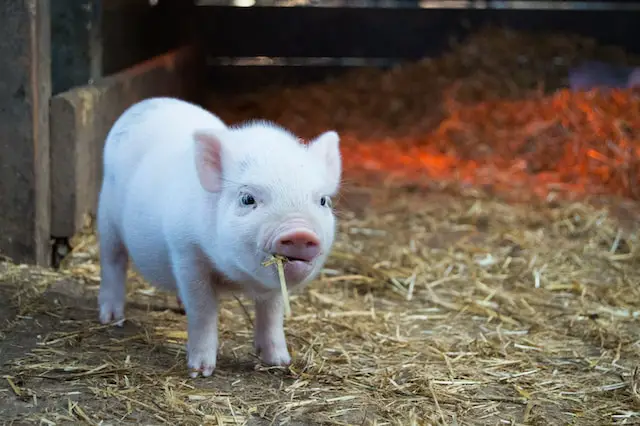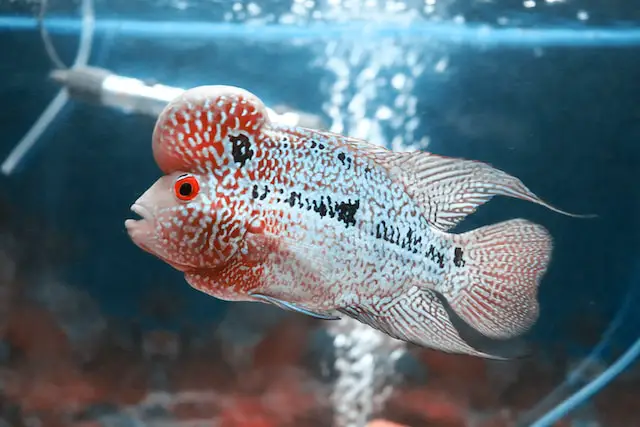Are Pigs Good Pets?
Are Pigs Good Pets?
As an enthusiast and advisor on the topic of keeping pigs as pets, I must say that pigs can indeed make wonderful companions for the right individuals or families. Over the years, pigs have been gaining popularity as domestic pets due to their intelligence, charming personalities, and social nature. However, before deciding to bring a pig into your home, it’s essential to consider various factors and understand the responsibilities that come with pig ownership.
Considering Pigs as Pets
Contrary to common misconceptions, pigs are not dirty or inherently aggressive animals. They can be incredibly affectionate and form strong bonds with their owners. While some people may have concerns about pigs as pets, it’s essential to look beyond stereotypes and evaluate their suitability based on individual circumstances.
Pig Breeds as Pets
Various pig breeds are suitable for domestication, each with its unique characteristics and temperaments. The most popular pig breeds kept as pets include the Juliana Pig, the American Mini Pig, and the Potbelly Pig. Juliana Pigs are known for their small size and intelligence, making them a popular choice for indoor living. American Mini Pigs are friendly and social, while Potbelly Pigs are curious and often display charming antics.
Pros of Having a Pig as a Pet
One of the main attractions of having a pig as a pet is their high level of intelligence. Pigs are remarkably smart animals, often compared to the intelligence of dogs. This intelligence makes them highly trainable, and they can learn a variety of tricks and commands. Additionally, pigs are known for their loyalty and affection, creating a strong bond with their owners. Their social nature also makes them enjoy interaction and companionship.
Challenges of Owning a Pig
Owning a pig as a pet is not without its challenges. Pigs require ample space to roam and explore, and they can become bored or destructive if confined to small areas. Additionally, their dietary needs must be carefully managed to avoid obesity or nutritional deficiencies. Pigs also need regular veterinary care, and potential owners must be prepared for the lifelong commitment that comes with pig ownership.
Legal and Zoning Considerations
Before getting a pet pig, it’s crucial to research and understand the legalities and zoning regulations related to pig ownership in your area. Some regions have restrictions or specific requirements for keeping pigs, and it’s essential to comply with these regulations to avoid legal issues in the future.
Preparing Your Home for a Pig
Creating a suitable living environment for a pet pig is essential to ensure their well-being and happiness. Pigs are naturally curious and can get into mischief, so pig-proofing certain areas of the house is essential. Providing a cozy indoor space and a safe outdoor area for exercise and exploration is vital for their overall health and happiness.
Feeding and Nutrition
Proper nutrition is crucial for a pet pig’s health and longevity. A well-balanced diet that includes a variety of fruits, vegetables, and specially formulated pig food is necessary to meet their dietary requirements. Portion control is also essential, as overfeeding can lead to obesity and related health problems.
Training and Socialization
Training a pig requires patience, consistency, and positive reinforcement. Pigs can be stubborn at times, but with the right approach, they can learn commands and house rules effectively. Socialization is equally important, as it helps pigs develop positive behavior around people and other animals.
Healthcare for Pet Pigs
Just like any other pet, pigs require regular veterinary check-ups to monitor their health and catch any potential issues early. Understanding common pig health issues and taking preventive measures, such as vaccinations and parasite control, are crucial for keeping a pig healthy and happy.
Bonding with Your Pig
Building a strong bond with a pet pig involves spending quality time together, engaging in activities, and understanding their unique preferences and personalities. The more effort you put into bonding with your pig, the stronger your relationship will become.
Pig-Proofing Your Yard
If you have an outdoor space for your pet pig, it’s essential to make it safe and secure. Fencing is necessary to prevent pigs from wandering off and to protect them from potential dangers. Providing suitable shelter is also essential, especially in extreme weather conditions.
Interacting with Other Pets
If you already have other pets in your household, introducing a pig requires careful consideration. Slow and supervised introductions can help ensure a harmonious environment, and with time, many pigs can get along well with other animals.
Pig Enrichment and Entertainment
Pigs are intelligent animals that thrive with mental stimulation and entertainment. Providing them with toys, puzzles, and activities that cater to their curiosity will help keep them engaged and happy.
Conclusion
In conclusion, pigs can make fantastic pets for those willing to invest time, effort, and love into their care. Their intelligence, loyalty, and social nature contribute to their appeal as companion animals. However, potential pig owners must be aware of the challenges and responsibilities that come with pig ownership, including proper living conditions, nutrition, and veterinary care. By providing a suitable and loving home, a pet pig can become a cherished member of the family, bringing joy and companionship for many years.
FAQs
- Can I keep a pig as a pet if I live in an apartment?
Keeping a pig in an apartment can be challenging due to space limitations. However, some smaller pig breeds, like Juliana Pigs, can adapt better to indoor living with enough space for exercise and enrichment. - Do pet pigs require a lot of attention and companionship?
Yes, pigs are social animals that require regular interaction and companionship. Spending time with your pig and providing mental stimulation are essential for their well-being. - Are pet pigs noisy?
Pigs are generally not as noisy as some other pets, but they can vocalize and grunt to communicate their needs or emotions. - What kind of living space does a pet pig need?
Pet pigs need sufficient indoor and outdoor space to explore, exercise, and express their natural behaviors. A spacious yard with secure fencing is ideal for outdoor activities. - Can I train my pet pig to do tricks like a dog?
Absolutely! Pigs are highly intelligent and can be trained to learn tricks and follow commands with positive reinforcement training methods.
Remember, owning a pet pig is a long-term commitment, and understanding their unique needs and characteristics is essential for a happy and healthy pig-human relationship.




